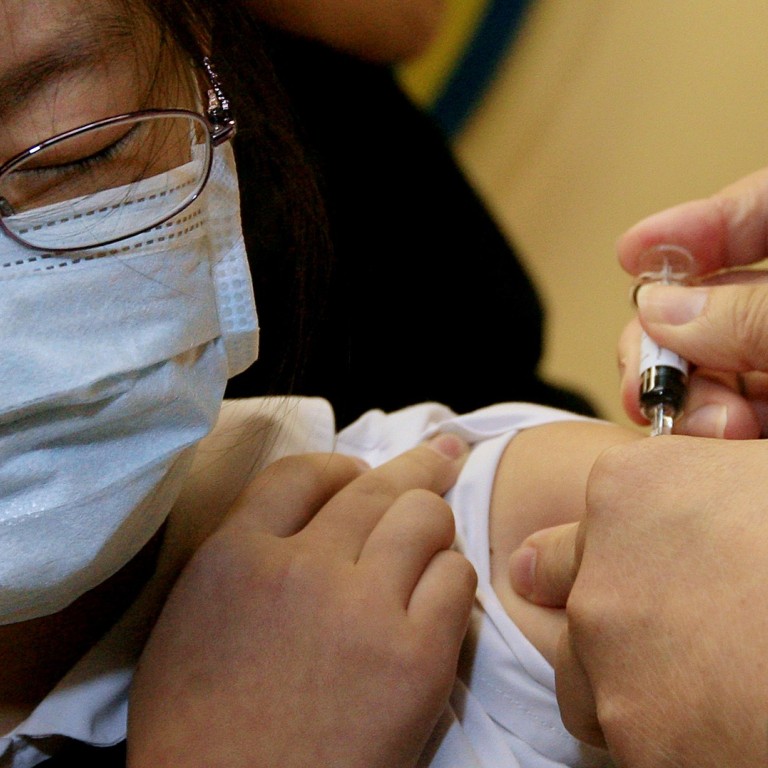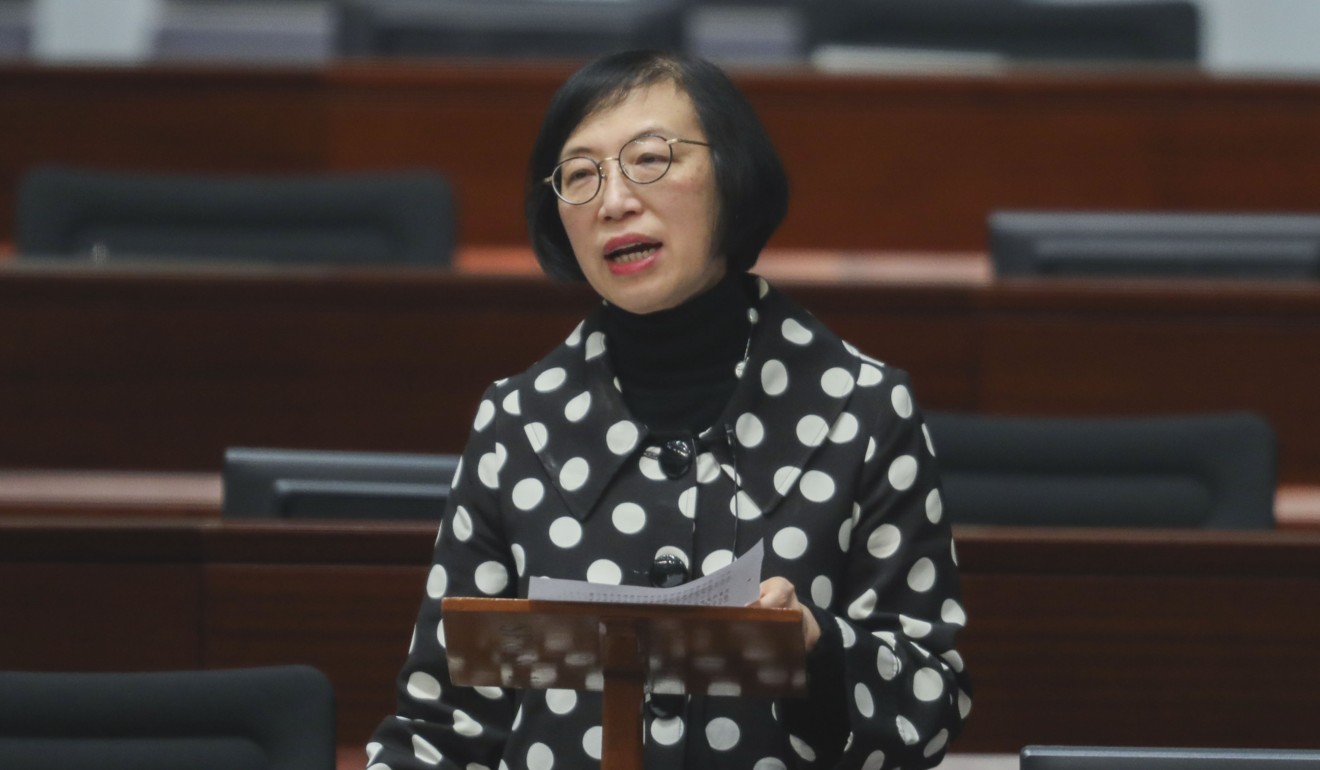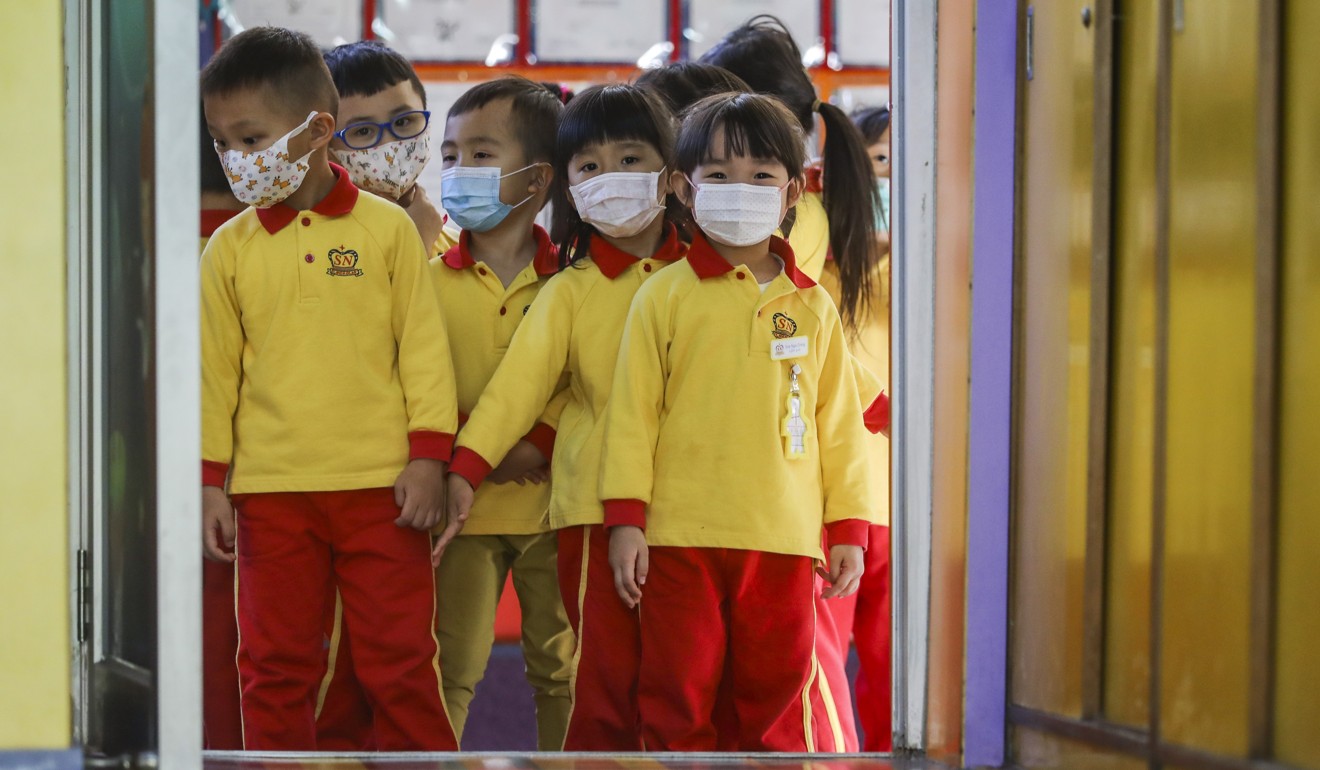
Pilot scheme for free flu jabs at primary schools to become regular programme after successfully raising vaccination rate, Hong Kong’s health chief Sophia Chan says
- Department of Health scheme to provide shots has pushed up vaccination rate to about 55 per cent among primary pupils
- Programme will be extended to cover some 1,000 kindergartens and childcare centres as pilot scheme
A pilot scheme to give free flu jabs to primary pupils at school will become regular service in the coming academic year to protect against seasonal influenza, which hits the city once or twice annually, the health minister has announced.
The Department of Health’s scheme to provide jabs near the beginning of the school year had been successful in pushing up the vaccination rate to about 55 per cent among primary pupils, Secretary for Food and Health Professor Sophia Chan Siu-chee told the Legislative Council on Wednesday.

But a leading microbiologist said the target for the vaccine coverage rate should be set at 70 per cent to stop the spread of the flu virus more effectively.
As of Tuesday, 407 flu outbreaks had been reported in some 1,000 kindergartens and childcare centres. At least 416 adults and 21 children required intensive care, with 226 adults and a two-year-old boy dying from the illness this winter season.
Brain drain fears as Shenzhen dangles billions for teaching hospital
“Given the effectiveness of the 2018-19 School Outreach Vaccination Pilot Programme, the Department of Health will regularise the programme from next year onwards,” Chan said.
“It will also be extended to kindergartens and childcare centres as a pilot programme.”
The number of primary schools that arranged for vaccinations on their premises jumped to 402 in 2018-19, from 65 the previous year, pushing up the overall vaccination rate in that group to 55.3 per cent, Chan said.
That meant most of Hong Kong’s 569 primary schools had adopted the scheme.
At the same time, there was a 118 per cent increase in the number of children aged between six months and 12 years old getting shots, with 371,000 doses of flu vaccine used this year.

However, University of Hong Kong microbiologist Professor Ho Pak-leung urged the government to set a target of 70 per cent coverage to extend the protection rate among schoolchildren – a level similar to that of 77 to 84 per cent in Macau and 76 to 78 per cent in Taiwan.
“Setting the vaccination rate above 70 per cent of schoolchildren would be effective in stopping the spread of the flu virus and lowering the burden on public hospitals,” Ho said.
Last week, the Centre for Health Protection said local influenza activity had continued to fall from January’s peak but remained above the baseline level.
Ease restrictions on overseas doctors, says academy of medicine chief
Chan also said the government had been striving to strengthen the medical workforce to relieve the strain on public hospitals, which were stretched to breaking point during the winter peak.
She said the Medical Council, an independent body that regulates and licenses doctors, was exploring whether an exemption could be made on an internship requirement for overseas doctors who worked at public hospitals under a limited registration, to provide more incentives for non-local practitioners to stay.
Public hospitals had introduced measures to increase manpower during the winter peak season such as recruiting part-time staff and minimising the number of meetings or postponing non-urgent ones as far as practicable to allow health care staff to focus more on clinical work, she added.


